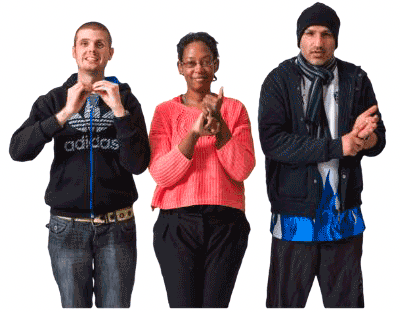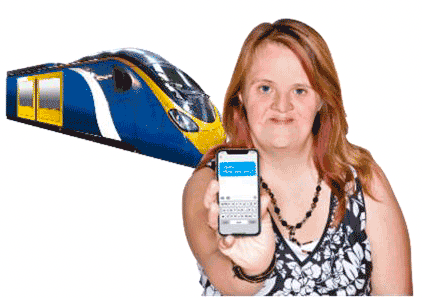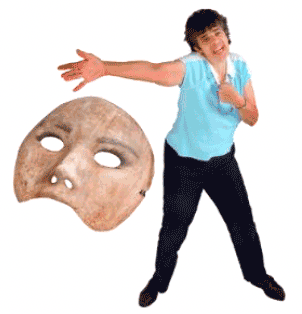British Sign Language - national plan: progress report - easy read
Easy read version of the British Sign Language (BSL) national plan progress report.
British Sign Language Plan - The work so far
Introduction
The Scottish Government worked with a group of:
- D/deaf and Deafblind BSL signers
- parents of D/deaf children
- other organisations
to make a British Sign Language National Plan for 2017-2023.
This report is about some of the work that has happened since then.

We will use 'BSL' for short in this report to mean British Sign Language.
In this report we use 'BSL users' to mean D/deaf and/or Deafblind people whose first language is British Sign Language.

The Scottish Government wants to make Scotland the best place in the world for BSL users to live, work, learn and visit.

The publication of this Progress Report has been held up because of the coronavirus pandemic.

Some of the work we have done so far:
Response to the Covid-19 pandemic
Coronavirus has had a big effect on all our lives.
BSL has been promoted and supported in these difficult times.

Some of the new work:
- a BSL/English interpreter at Scottish Government coronavirus briefings
- more BSL in social media posts
- NHS Inform BSL health information
- British Deaf Association Scotland video briefings and live BSL information online every week

In public life and in communities
The Scottish Government has given money to organisations to:
- work with and support organisations that provide public services with their BSL plans

Public services are services everyone in a community uses like schools, hospitals and councils.
- encourage public services to build good relationships with their local BSL communities
- have more BSL information

Some of the new work:
- There has been a review of BSL/English interpreting in Scotland

A review looks closely at something to see if it is working well.
- Scotland's 2022 Census will ask 'can you use BSL?' for the first time

The census is a survey that happens every 10 years and gives information about all the people and households in the country
- More people from the Deaf/BSL community have jobs or apprenticeships

- the BSL Partnership has employed people from the BSL community
- research shows employing signers in public services helps people understand the importance of BSL

Public Services
Every council got money to make their first BSL Plans.

In 2020 the British Deaf Association found that:
- all 32 councils published their BSL Plans in written English and 30 published their Plans in BSL

- 16 councils had done some of the work in their plan
- 5 councils had Deaf and/or BSL Awareness training for staff
- 27 councils had BSL information about coronavirus online

Family support, early learning and childcare
The Scottish Government has worked with organisations to:
- support parents of deaf children
- make access to information for families better

Some of the new work:
- BSL videos on the Bookbug app encourage children to love reading

- Early Years services have:
- new BSL teaching material including online learning
- training, resources and equipment to support BSL training and information

Education
The Scottish Government is working to make sure that BSL users can be the best they can be as teachers and learners.

Some of the new work:
- The Scottish Government gets advice from experts on plans to promote BSL use in schools

- More schools offer BSL as a second language
- New BSL qualifications are available
- There is a new BSL course for primary teachers
- Scotland's Centre for Languages had a group to look at BSL learning
- BSL is part of some teacher training

The Plan says it is important for teachers and schools to communicate with parents who use BSL.

- Education Scotland has shared work that has gone well working with parents who use BSL
- There are BSL videos on the Parentzone Scotland website

Training, work and benefits
Moving from school to further education, or to the world of work, is a difficult time for everyone.

BSL users may have extra challenges and need extra support.
Some of the new work:
- Skills Development Scotland giving information in BSL to students and promoting apprenticeships to BSL users.

BSL users get the highest level of Modern Apprenticeship funding.

An apprenticeship is a real job where you learn, get experience and get paid.
- Work experience for BSL/English interpreters in public services
- BSL information about the Young Person's Guarantee

This Guarantee offers every 16-24 year old in Scotland the chance of a job, apprenticeship, further education, training or volunteering.
- the Workplace Equality Fund has supported inclusion in the workplace for BSL users

- Social Security Scotland has BSL information to support people through the benefit process
- Social Security Experience Panels have BSL interpreters

These panels ask people to share their experiences and ideas about how Scotland's benefits system should work.
Healthcare
BSL users must get the same level of healthcare and support as everyone else in society.

Health staff using BSL must have fair access to training, employment and career development.
Some of the new work:
- NHS24 and Health Scotland worked with deaf community members to make BSL health information

- QR codes on posters and letters take users to BSL webpages

- ContactSCOTLAND-BSL interpreting video service supports BSL signers to communicate with health services
- more health records show if a patient uses BSL or needs an interpreter
Health and social care staff have:
- guidance on how to tell people about BSL information, interpretation and translation services

- guidance on working with BSL users
- e-learning in BSL and Deaf culture and BSL and Tactile Awareness
- Sportscotland and deafscotland worked to encourage sports organisations to work with BSL users

Transport
The transport system must be accessible for everyone who lives in or visits Scotland.
Work has been done to make transport information in BSL and to train transport providers to communicate with users.

Some of the new work:
- webinars about the transport plan included BSL interpreters

- Cycling by Design worked with the deaf community on how to make cycling better.

- a Scotrail BSL app to help staff communicate with BSL users.
- The Mobility and Access Committee (MACS) made guidance on how to support disabled passengers during the coronavirus pandemic.

- disability equality training for transport services.

Culture and the arts
Culture can mean:
- the ways people are creative and express themselves.
- how people enjoy creative things that other people have made like films, craft and art.

The Plan wants:
- to support BSL users to have jobs in the arts.
- to make performances and exhibitions accessible for BSL users.
- more BSL arts information.

Some of the new work:
- BSL sessions supporting people to give information to a Scottish Government plan about culture.
- staff sessions on supporting BSL users.

- BSL interpreters at performances
- BSL tours of historic sites

- a new degree in Performance in BSL with English.

Justice
BSL users must have equal access to justice.

Access to justice means being treated fairly by the law, and having access to police, courts and organisations that give advice.
Some of the new work:
- a new group called the BSL Justice Advisory Group gives guidance and advice to justice organisations.

- there are plans for a new legal aid service for BSL users.
- training programmes for BSL/English interpreters working in the justice sector are being reviewed.

- Scotland's emergency services have a new group to work on making access to emergency services better.
- Scottish Fire and Rescue Service made BSL safety videos.

Democracy
BSL users must be able to take part in politics at every level.
The Scottish Parliament election of 2021 was a good chance to see if the BSL National Plan was working well for politics.

Some of the new work:
- the Access to Elected Office Fund supports disabled people who want to be elected

- The Electoral Commission:
- made BSL videos and social media information before the 2021 election about voting
- gave guidance and an accessibility checklist to staff in Polling Stations


What is going to happen next
In the four years after Scotland's first BSL National Plan there has been a lot of work to make our country more inclusive and supportive of BSL users.
We know there is still a lot of work to do.

We will use reports from the BSL Partnership on how well work is going in councils, NHS health boards and in education.
We will decide what work must happen next to make sure signers have access to all areas of life in Scotland.

We want to thank:
- the BSL Partnership for their important work
- the councils, public services, universities and colleges who made their own plans and have done the work in them.
- the many signers who have been part of the work to make Scotland the best place in the world for BSL users.

Contact
Email: max.barber@gov.scot
There is a problem
Thanks for your feedback